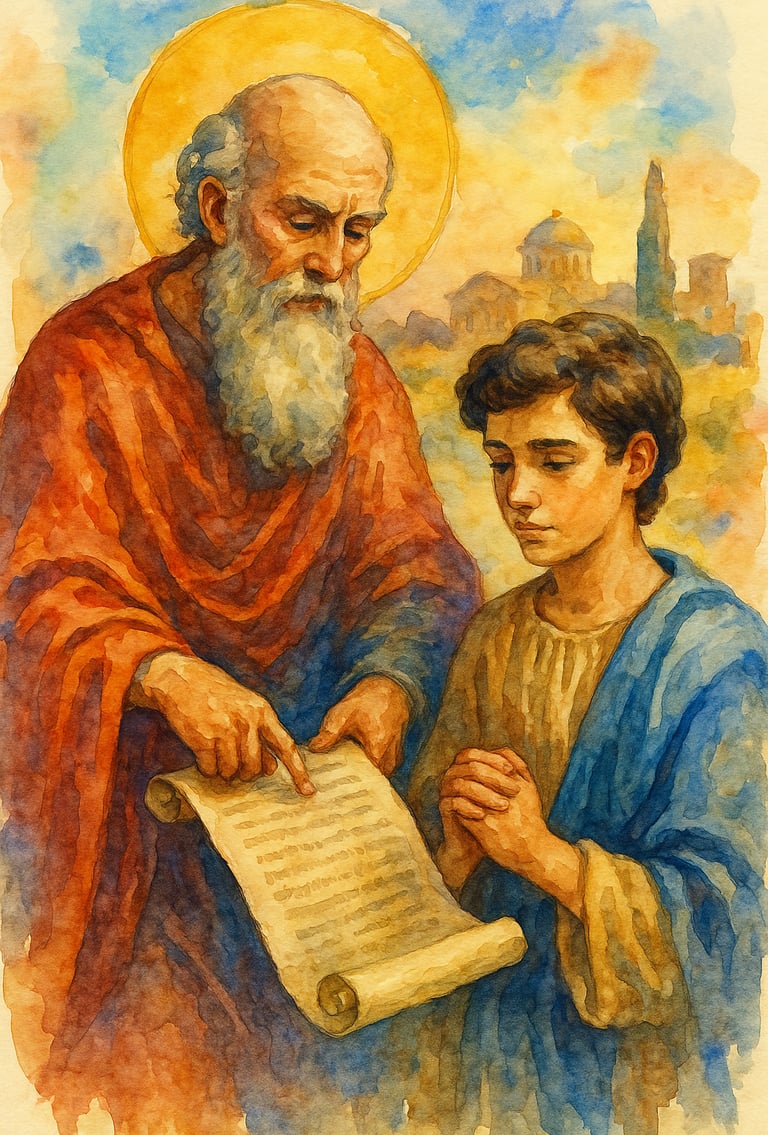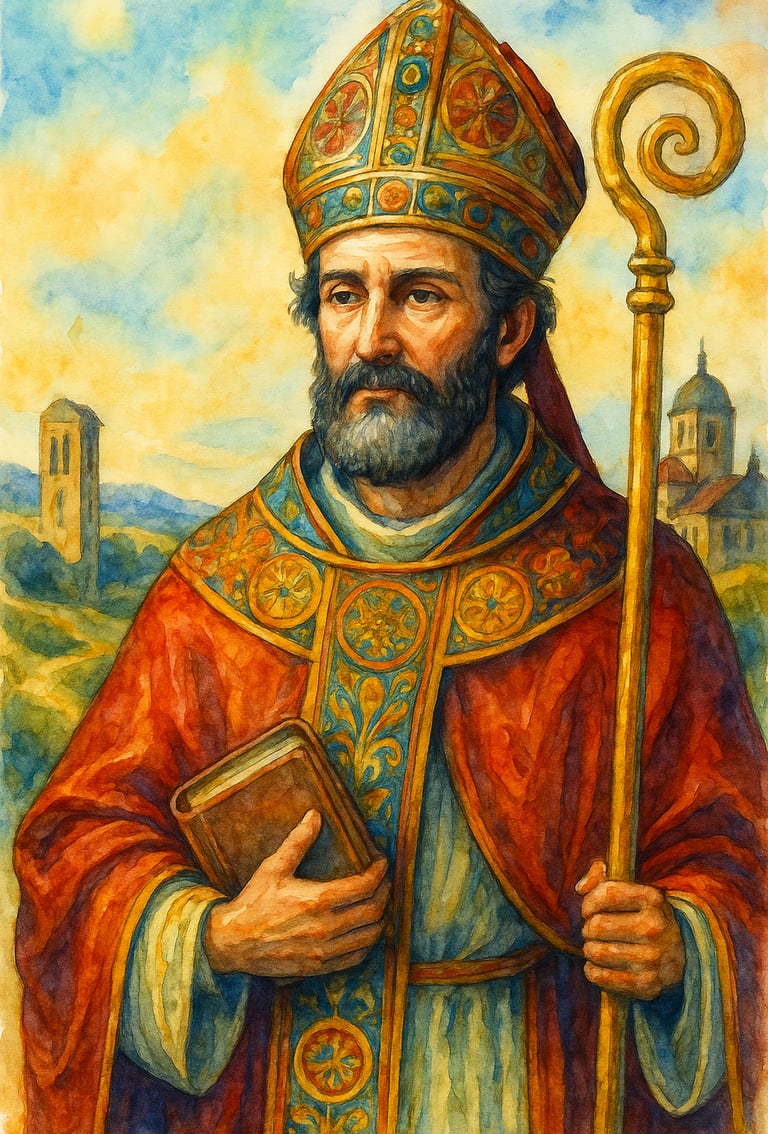St. Irenaeus of Lyons
Defender of Apostolic Truth and Doctor of Unity
Halo and Light Studios
6/28/20253 min read


Click Link for a reel of Daily Dose of Saints and Faithful Art:
https://youtube.com/shorts/RXEuganbJFY?feature=share
St. Irenaeus of Lyons (c. 130–c. 202 AD) was one of the most critical figures in early Christianity. A bishop, theologian, apologist, and martyr, he served as a living bridge between the Apostolic era and the emerging Church, in a time marked by heresies, persecution, and doctrinal confusion. Above all, he was a champion of unity—doctrinal, liturgical, and ecclesial.
Born in Smyrna (modern-day Izmir, Turkey), Irenaeus was a disciple of St. Polycarp, who had been taught by St. John the Apostle. This direct link to the apostolic witness deeply shaped his theology and ecclesiology. He later became bishop of Lugdunum (Lyon, France), where he faced two formidable threats: Roman persecution and the rise of Gnosticism, a heresy that claimed secret knowledge, denied the goodness of creation, and distorted the true Gospel of Jesus Christ.
In response, Irenaeus wrote his famous work Adversus Haereses (Against Heresies), where he vigorously defended the orthodox Christian faith—especially the real Incarnation of Christ, the unity of Scripture, and the authority of apostolic succession. He affirmed that true doctrine is preserved in the public teaching of the bishops, passed down from the Apostles, and especially safeguarded in communion with the Church of Rome.
For Irenaeus, unity was not optional—it was essential to the Church’s life and mission. He recognized that when the Church is divided in belief or separated from apostolic authority, the witness of Christ is gravely weakened. His defense of unity directly echoes the prayer Christ made on the night before His Passion.
In John 17, Jesus prays to the Father three times for the unity of His followers:
John 17:11 – “Holy Father, keep them in your name... that they may be one, even as we are one.”
John 17:21 – “That they may all be one... so that the world may believe that you have sent me.”
John 17:23 – “That they may become perfectly one, so that the world may know that you sent me and loved them…”
This unity is not mere cooperation or superficial agreement. It reflects the very life of the Trinity—unity in truth, love, and mission.
Irenaeus echoed this in his profound theology of recapitulation—the belief that Christ did not merely come to forgive sin, but to re-live and sanctify every stage of human life, from womb to tomb. From His conception and birth to His growth, suffering, death, and resurrection, Christ fully entered the human experience. By doing so, He consecrated each moment of our lives and restored what was lost through Adam’s disobedience.
The unity of the Church, then, is not merely a visible institution—it is the very fruit of Christ’s redeeming life. It heals division and draws all of humanity back into communion with God. Unity is both a divine gift and a sacred responsibility.
In 2022, Pope Francis declared St. Irenaeus a Doctor of the Church, giving him the title “Doctor Unitatis”—Doctor of Unity. This title honors his legacy as a man who tirelessly worked to preserve the faith, guard the Church from heresy, and call all Christians into one Body under Christ.
In our contemporary world, we often avoid addressing heresy or doctrinal error in the name of tolerance or harmony. But St. Irenaeus shows us—through his life, his writings, and his martyrdom—that truth is worth dying for. Unity does not mean silence about truth; it means faithfulness to Christ and to the teachings of His Church.
To my fellow Catholics: If you do not fully believe what the Church teaches—on contraception, abortion, the sacraments, or the moral life—you are not in full communion with the Church. You are not truly Catholic if you reject the Church’s magisterial authority. Fidelity to the Church is fidelity to Christ.
To my separated Christian brothers and sisters: Come home. The Church you may have been told to fear is the one Jesus Himself founded. He established one Church, not many. He entrusted it to the Apostles, not to personal interpretation. Jesus Himself prayed for unity. Will you accept His bride, the Church? Will you receive His Real Presence in the Holy Eucharist?
St. Irenaeus, Doctor of Unity, pray for us—
that we may be one, as the Father and the Son are one.


